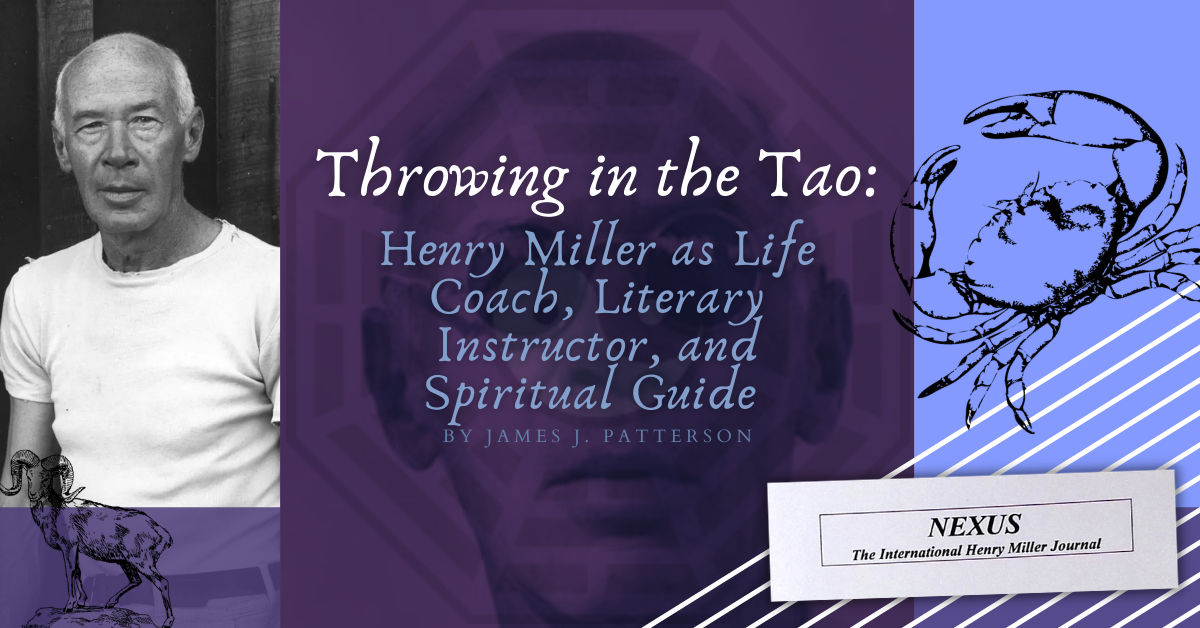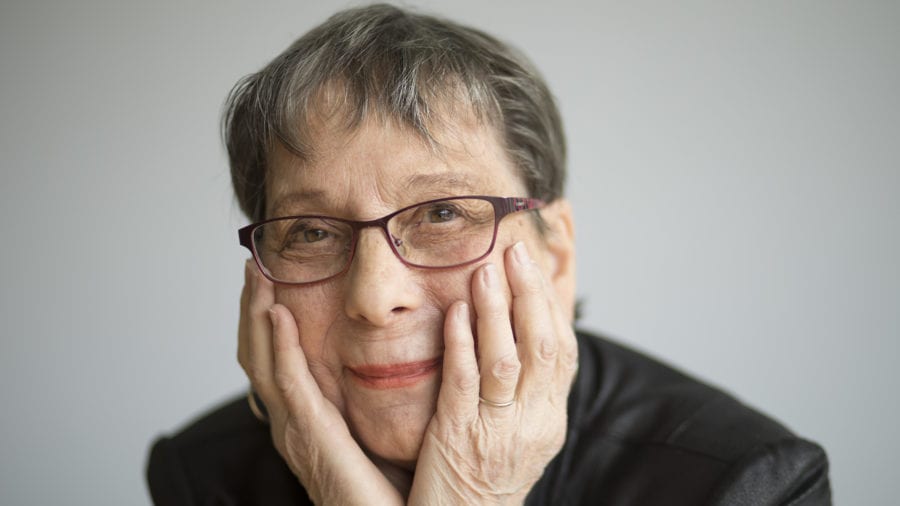Throwing in the Tao; James J. Patterson's New Essay Appears in Henry Miller Journal
The full title of James J. Patterson's new essay which appears in Nexus: The International Henry Miller Journal is "Throwing in the Tao: Henry Miller as Life Coach, Literary Instructor, and Spiritual Guide"

With a new edition of Nexus: the International Henry Miller Journal comes a whole new discourse on the oft-ignored American master. James J. Patterson's unique perspective on Miller appears as "Throwing in the Tao..." an essay concerning the correspondence between writer Lawrence Durrell and his mentor, Henry Miller. An excerpt follows below. Catch it in the new edition of Nexus. And check out another essay by James J. Patterson published in The Bulletin "Hermes at the Kakistocracy Hotel."
In these early letters to Miller, Lawrence Durrell lamented his frustration with the “racket” called publishing. Miller took an instant liking to the ex-patriot Englishman, and wrote back from the Villa Seurat, in Paris. It was the summer of 1936, but it could have just as easily been the winter of 1988, or today, for that matter, and his letter could have just as easily been addressed to two writing, working, musicians, slugging their way through the blizzards of bullshit that are the American recording and arts industry in general.
After some brief commiserations, Miller got down to business:
“Listen Durrell, don’t despair yet. If you have the guts for it the thing to do is to go to the bitter end, in your writing I mean. If you can possibly hold out, and I imagine you can, write only what you please. There is nothing else to do, unless you want to become famous. They will shit on you anyway, so have your say first. I’m not recommending obscenity necessarily. Each man has his own way of being himself and of saying it so ultimately that he can’t be denied. Compromise is futile and unsatisfactory.”
As Hunter S. Thompson might say, here comes the wisdom, the kicker, the template and business plan on which I depended upon for the rest of my professional life.
“You will always have a hundred readers and, if they have taste and discernment, what more can you ask? Even when you elect to be absolutely honest it is difficult. Expression seems such a natural, God-given thing – and yet it’s not either. It’s a life-long struggle to find yourself. Think of Cezanne, Van Gogh, Gauguin, Lawrence. Think of Dostoevsky – or Titian, if you will. Think of the autobiographical documents: they teach you more than anything… (The Durrell-Miller Letters, Paris, August, 1936, pg., 16,17).
This piece of writing hit us both like a nourishing warm breeze. Soothing, reassuring, liberating. From that moment on, we catered to our tastes, and ours alone - in our songwriting and compositions, our approach to our audience, as well as business people, and in defining who we were and what we were about.
“You will always have a hundred readers, and if they have taste and discernment…” they can go out and get you another hundred we reasoned, and they can get you another two hundred, and on and on. There it was, the blessedness of networking. And weren’t Miller and his friend Alfred Perles doing just that? Clearly, they had gotten the young Durrell to sign up for subscriptions to their projects, like writers did in Balzac’s day. The multiplication was working. And if it could work for them it could work for us!
Featured Audio: Rose Solari reads “The Beginning, 1939”
In “The Beginning, 1939” Rose Solari’s mastery of recitation is put to the music of her capricious mother and the frantic hopes of her father who wishes to leave “no long, tight pauses for her to fill.” I’ve written before about Rose’s use of swing and rhythmic motifs in her work, elements which are alive in this poem, but what is really mesmerizing to me about “1939” is the musical image toward the end which harbors no pretense of cramming lieder into language, but instead focuses on the very physical act of her mother playing the piano:
Mikaela Lefrak Examines the Life of Maryland Poet Laureate, Grace Cavalieri
The beloved Grace Cavalieri “contains multitudes” according to Mikaela Lefrak in her newest article from WAMU taking a look at the life and career of the 10th Poet Laureate. And Ms. Lefrak treats her subject with the due respect of a life which cannot be covered succinctly in 500 words. She delivers a reverent tourists’ view of Grace Cavalieri’s life, hitting the big things: her poetry and work ethic, the passing of her husband, Kenneth Flynn, her conversion to Buddhism, and finally her new tenure as Poet Laureate.
Listen to Grace Cavalieri on the Kojo Nnamdi Show
Grace Cavalieri’s recent stop at NPR’s The Kojo Nnamdi show is now streamable. Over a substantive 22 minutes, listen to Grace talk about poetry, inspiration, and her plans as the 10th Maryland Poet Laureate.

